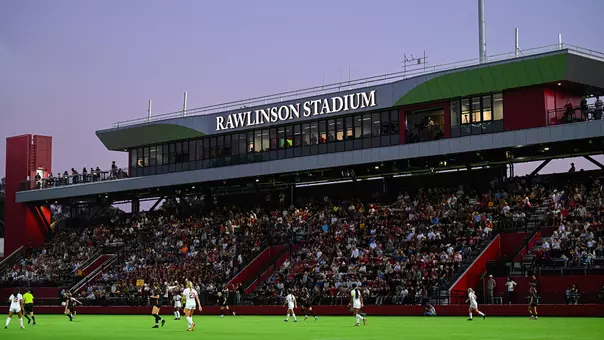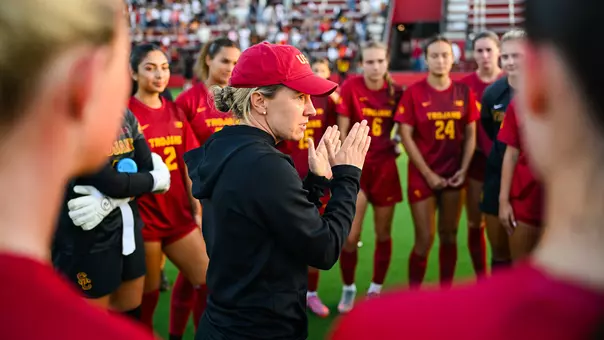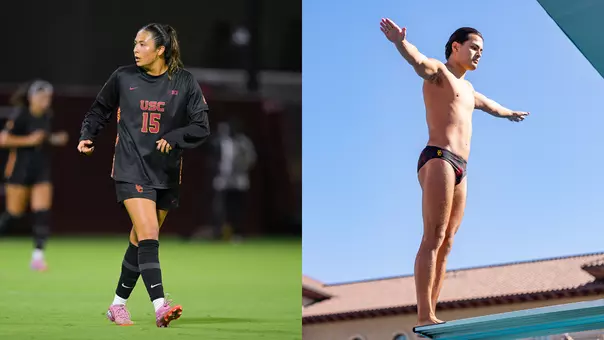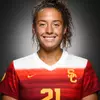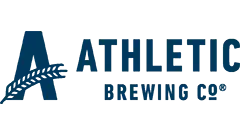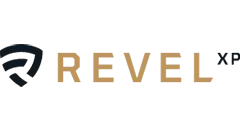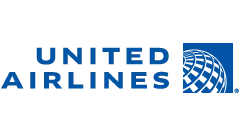University Southern California Trojans
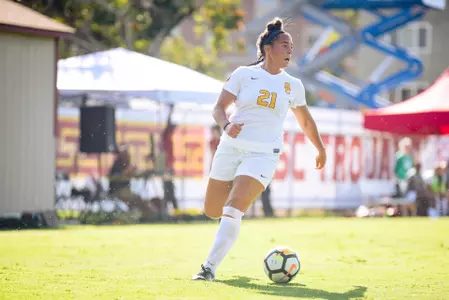
Stevens Center Academic Spotlight: Alex Anthony
November 16, 2017 | Women's Soccer, Student-Athlete Academic Services, USC Ripsit Blog, Features
USC's student-athletes are more than just champions on the field, court, diamond and pool — they're champions in the classroom as well. Each week, we will get to know one of these scholarly Trojans a bit better in our academic spotlight.
 Name: Alex Anthony
Name: Alex Anthony
Class: Redshirt senior
Sport: Women's Soccer
Major: Master's in Public Policy (certificate in Homeland Security)
GPA: 3.66
Aubrey Kragen (AK): After starting your college career at Maryland, what made USC an attractive option when it came time to transfer?
Alex Anthony (AA): At Maryland, I was accepted into a Master's program in international security and economic policy. I was in Maryland, just nine miles away from Washington, D.C., and with what I want to do in the future, that was an amazing thing about Maryland. But then once I started looking elsewhere, I wanted to find a school that had a relatively comparable Master's program. That limited the schools that I was looking at quite a bit, but USC had a certificate in Homeland Security and they also have CREATE, which is where I'm doing my research. Having that opportunity and then some of the professors at USC were some of the big reasons I came out here.
AK: Can you explain what you're doing at CREATE?
AA: It's the Center for Risk and Economic Analysis of Terrorism Events. Basically, what I'm working on is either terrorism-related, or resilience to natural disasters. Just about some aspect of homeland security. Either researching literature or editing papers and writing.
AK: After graduating from Maryland, was the transferring process a difficult transition for you?
AA: The biggest change from undergraduate to graduate school is the fact that there's a lot more reading and they give you a lot more freedom, in a sense. You don't have assignments due every week, but you have a couple big assignments due. And they're all due at the same time. So you have to make sure that you space things out and manage that. And there's a lot of group work in my program. It's different from a team, in a sense, because you know everyone on a team and you all have the same goal in mind. But that's not necessarily the case with group work. And in my program, I'd say over 50 percent are international students, so there are language gaps and those sorts of things that can create difficulties.
AK: How does your undergraduate work in psychology and sociology inform your understanding of your current program?
AA: There's definitely some crossover. Just the understanding that you get from having that background. Sociology made me more aware of those around me and what sort of hardships they might go through or the background they come from that causes them to act the way that they act or think the way they think. From a psychology standpoint, there are theories that you learn along the way that you can actually see in people and in groups. So that overlap is more at the subconscious level than conscious. I might be thinking from a public policy standpoint, how does it affect this group in a way that might not normally be thought of.
AK: What career goals do you have after graduating?
AA: I want to go to law school, so I still want to do more schooling. But after that, I want to work for the CIA or FBI. CIA is really my dream, because I like the international scope that it has, as opposed to the FBI. I know that they have a presence internationally, but it's moreso the CIA. So that's what I eventually want to do, be an agent or analyst.
AK: You were recently named to the CoSIDA Academic All-District first team. What did that honor mean to you and your family?
AA: It's really awesome. It's obviously great to get some sort of recognition. It means a lot to my parents because they've always tried to instill and academics first type of mentality in all of us kids. So they're proud that I actually followed through on that part of what they wanted. Just being able to give them that and let them know that you can still play a sport but it doesn't have to be the only thing in your life. There's life past your sport, and making sure that you're preparing yourself for that is what these awards show.
 Name: Alex Anthony
Name: Alex AnthonyClass: Redshirt senior
Sport: Women's Soccer
Major: Master's in Public Policy (certificate in Homeland Security)
GPA: 3.66
Aubrey Kragen (AK): After starting your college career at Maryland, what made USC an attractive option when it came time to transfer?
Alex Anthony (AA): At Maryland, I was accepted into a Master's program in international security and economic policy. I was in Maryland, just nine miles away from Washington, D.C., and with what I want to do in the future, that was an amazing thing about Maryland. But then once I started looking elsewhere, I wanted to find a school that had a relatively comparable Master's program. That limited the schools that I was looking at quite a bit, but USC had a certificate in Homeland Security and they also have CREATE, which is where I'm doing my research. Having that opportunity and then some of the professors at USC were some of the big reasons I came out here.
AK: Can you explain what you're doing at CREATE?
AA: It's the Center for Risk and Economic Analysis of Terrorism Events. Basically, what I'm working on is either terrorism-related, or resilience to natural disasters. Just about some aspect of homeland security. Either researching literature or editing papers and writing.
AK: After graduating from Maryland, was the transferring process a difficult transition for you?
AA: The biggest change from undergraduate to graduate school is the fact that there's a lot more reading and they give you a lot more freedom, in a sense. You don't have assignments due every week, but you have a couple big assignments due. And they're all due at the same time. So you have to make sure that you space things out and manage that. And there's a lot of group work in my program. It's different from a team, in a sense, because you know everyone on a team and you all have the same goal in mind. But that's not necessarily the case with group work. And in my program, I'd say over 50 percent are international students, so there are language gaps and those sorts of things that can create difficulties.
AK: How does your undergraduate work in psychology and sociology inform your understanding of your current program?
AA: There's definitely some crossover. Just the understanding that you get from having that background. Sociology made me more aware of those around me and what sort of hardships they might go through or the background they come from that causes them to act the way that they act or think the way they think. From a psychology standpoint, there are theories that you learn along the way that you can actually see in people and in groups. So that overlap is more at the subconscious level than conscious. I might be thinking from a public policy standpoint, how does it affect this group in a way that might not normally be thought of.
AK: What career goals do you have after graduating?
AA: I want to go to law school, so I still want to do more schooling. But after that, I want to work for the CIA or FBI. CIA is really my dream, because I like the international scope that it has, as opposed to the FBI. I know that they have a presence internationally, but it's moreso the CIA. So that's what I eventually want to do, be an agent or analyst.
AK: You were recently named to the CoSIDA Academic All-District first team. What did that honor mean to you and your family?
AA: It's really awesome. It's obviously great to get some sort of recognition. It means a lot to my parents because they've always tried to instill and academics first type of mentality in all of us kids. So they're proud that I actually followed through on that part of what they wanted. Just being able to give them that and let them know that you can still play a sport but it doesn't have to be the only thing in your life. There's life past your sport, and making sure that you're preparing yourself for that is what these awards show.
Players Mentioned
USC Lacrosse vs Brown Highlights | Trojans win 9-8
Sunday, February 15
USC Men's Volleyball vs UC Irvine Highlights | Trojans lose 3-1
Friday, February 13
USC Lacrosse vs Denver Highlights | Trojans lose 15-4
Thursday, February 12
USC Lacrosse vs California Highlights | Trojans win 16-9
Sunday, February 08

